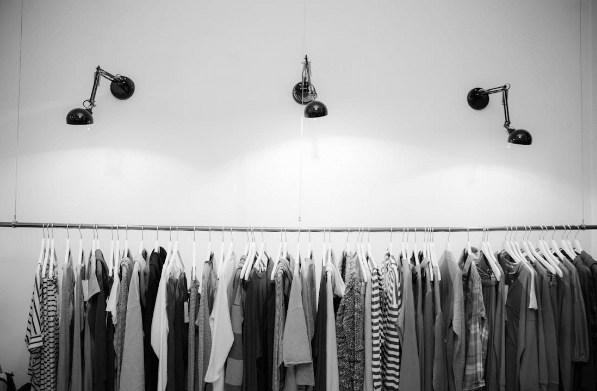9 Things to Consider When Choosing a Manufacturing Partner For Your Fashion Label

Choosing the right manufacturing partner is crucial for the success of your fashion label. This partnership affects everything from the quality of your products to the efficiency of your production process, and ultimately, your brand’s reputation. It’s not just about who can produce garments at a low cost; it’s about finding a reliable partner who aligns with your brand’s ethos and market goals. A good manufacturing partner ensures your designs are executed flawlessly and your products reach the market on time.
As we explore the key considerations for selecting a manufacturing partner, remember that this choice will significantly influence your brand’s path forward.
1. Production Capabilities
Assess the production capabilities of potential manufacturing partners. It’s essential to ensure that their production facilities can meet your quantity demands without compromising on quality. Ask about their ability to scale operations up or down depending on your business cycle and market demands. This flexibility can be vital during peak seasons or when experimenting with new product lines.
2. Industry Experience
The experience of a manufacturing partner can significantly influence your collaboration. Manufacturers with a deep understanding of the industry can offer insights and solutions. Moreover, their knowledge of troubleshooting common production issues can be invaluable for you. For instance, UltraPatches is a custom patch manufacturer that has years of experience in the industry, which allows them to manufacture, pack, and ship custom patches according to customers’ instructions.
Moreover, their in-house designers provide free consultations with every order, ensuring the final patches meet customers’ exact specifications. You can customize various features such as size, thread colors, borders, and backings to suit your specific needs.
Whether for personal use, team uniforms, or special events, you can get in touch with their team and discuss your design here.
3. Sustainability Practices
As consumers become more environmentally conscious, they favor brands that prioritize sustainability. Therefore, partnering with a manufacturer that practices eco-friendly production processes is increasingly important. Investigate whether potential partners use sustainable materials, have waste reduction measures in place, and comply with international environmental standards. Choosing a sustainable manufacturing partner not only helps the planet but also boosts your brand’s image and meets the expectations of your eco-aware customers.
4. Cost Structure
Understanding the cost structure of your manufacturing partner is critical. Transparent pricing without hidden fees is essential for budgeting accurately and avoiding surprises. Discuss their pricing in detail, including costs for different services like sampling and large-scale production runs. Make sure you understand what each fee covers and inquire about payment terms such as deposits or payment upon completion. It’s also beneficial to compare pricing between different manufacturers to ensure you are getting competitive and fair pricing for the services offered.
5. Communication Efficiency
Effective communication is the backbone of any successful partnership. Ensure that your manufacturing partner has a reliable system for communication. This includes timely updates and the ability to discuss and resolve issues as they arise. Good communication minimizes the risk of misunderstandings and errors throughout the production process. It’s crucial to have clear channels and protocols for communication, especially if dealing with overseas manufacturers where language barriers might come into play. Frequent, clear, and detailed exchanges will help keep your project on track and ensure that both parties are aligned on expectations.
6. Flexibility and Responsiveness
The fashion market is dynamic, with rapid changes in trends and consumer preferences. Your manufacturing partner should be flexible and able to respond quickly to these changes. This includes adapting to last-minute adjustments in design, scaling production volume up or down, or handling rush orders effectively. A partner’s ability to respond swiftly and adapt to changes can significantly reduce downtime and help capitalize on market trends. Ask potential partners about previous instances where they had to demonstrate flexibility and how they managed those situations.
7. Lead Times
Lead times are critical, especially in fashion, where being market-ready at the right time can dictate a product’s success. Discuss and agree on realistic production schedules with your manufacturing partner. Understanding their lead times for sampling and full production runs will help you plan your product launches more effectively and align them with key selling periods. Ensure these times are adhered to, as delays can negatively impact your sales and the trust of your customers. A reliable partner will not only meet these deadlines but will also have contingencies in place to handle unexpected delays.
8. Location and Logistics
The location of your manufacturing partner affects many aspects of your business relationship, including shipping costs, delivery times, and the ease of visiting the facilities. Local manufacturers might offer faster turnaround times and lower shipping costs, but they may be more expensive per unit. On the other hand, overseas manufacturers might provide cost benefits but come with higher freight charges and longer shipping times. Consider how the location impacts your overall logistics and choose a partner whose location aligns best with your distribution and marketing strategies.
9. Reputation and Reliability
A manufacturer’s reputation can significantly impact your decision. Research potential partners thoroughly to gauge their industry standing and reliability. Look for reviews, testimonials, and case studies from other fashion labels they have worked with. This can provide insights into their professionalism and the quality of their output. Additionally, checking their financial stability is crucial as it affects their ability to meet your production needs consistently. A reputable and reliable manufacturer will be transparent with their business practices and willing to provide references on request.
Conclusion
Choosing the right manufacturing partner is not just about finding someone to produce your garments; it’s about forming a strategic alliance that will foster the growth and sustainability of your fashion label. Each of the considerations discussed—production capabilities, quality control, industry experience, sustainability practices, cost structure, communication efficiency, flexibility, lead times, location, and reputation—plays a pivotal role in this decision. Take your time to evaluate each potential partner against these criteria and engage in detailed discussions to clarify their practices and policies. The effort you put into selecting the right manufacturing partner will pay dividends in the quality of your products, the efficiency of your operations, and the strength of your brand in the marketplace. Remember, this is a partnership that will shape the future of your label, so choose wisely.






